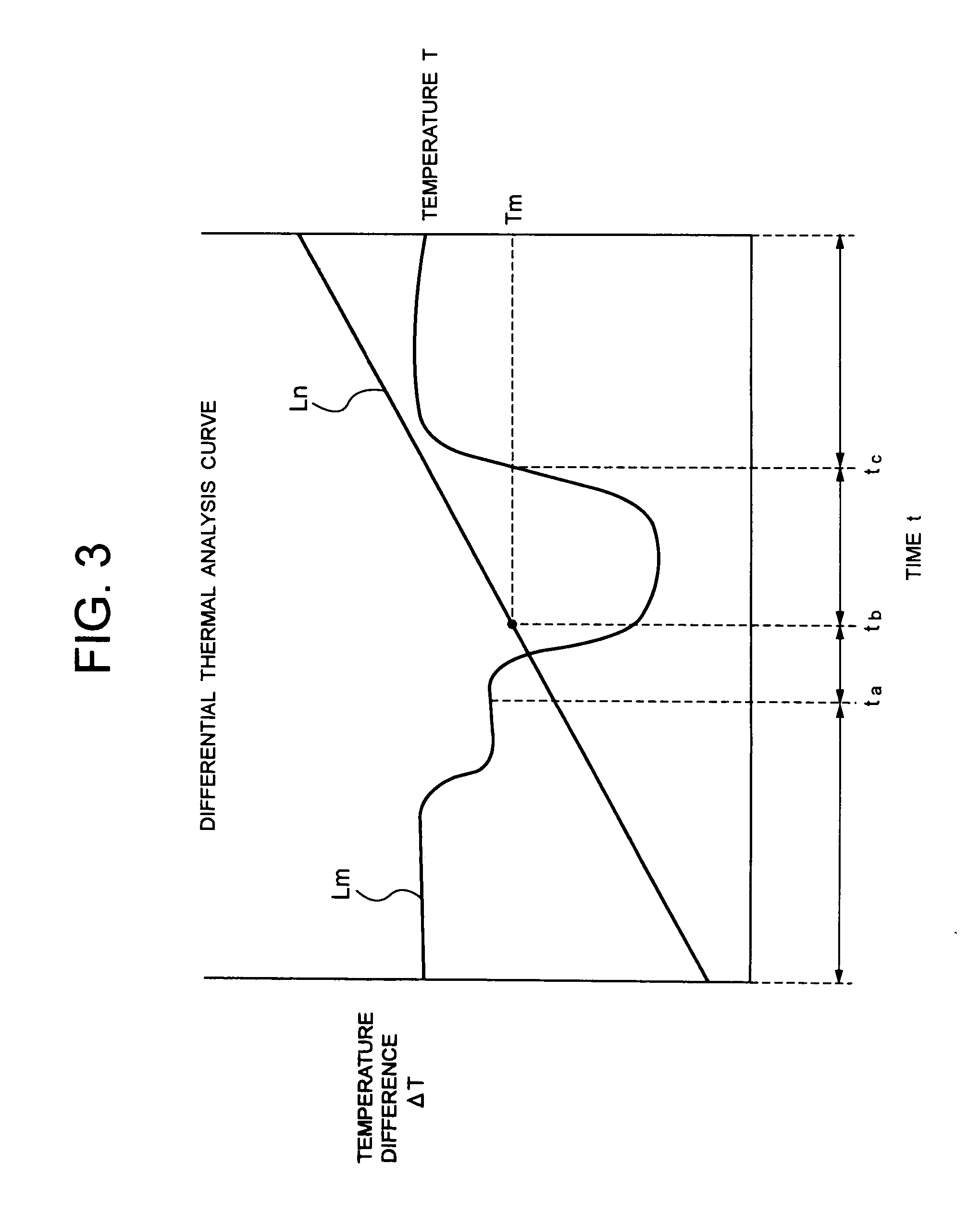Method of manufacturing plasma display panel and method of manufacturing plasma display apparatus
- Summary
- Abstract
- Description
- Claims
- Application Information
AI Technical Summary
Benefits of technology
Problems solved by technology
Method used
Image
Examples
first embodiment
[0097] A first embodiment is described with reference to FIG. 1A to FIG. 5. FIG. 1A to FIG. 1C are a series of process diagrams for describing a method of manufacturing a plasma display panel 18 according to a first embodiment of the present invention. FIG. 2 is a perspective view, schematically showing the inner structure of the plasma display panel 18.
[0098] In the method of manufacturing the plasma display panel 18 according to this embodiment, suitable values are set for the manufacturing conditions, such as the content ratio of the glass frit in the silver paste, the relationship between the softening points of the glass frits in the silver paste and the glass paste, and the average particle size of the silver powder. Then, an address electrode pattern and a dielectric layer pattern are formed and both patterns are baked (calcined) simultaneously, thereby forming a rear surface substrate. A front surface substrate is manufactured by means of a conventional method that does not...
second embodiment
[0144]FIG. 6A to FIG. 6D are a series of process diagrams for describing a method of manufacturing a plasma display panel according to a second embodiment of the present invention. FIG. 7 to FIG. 10 show the relationship between the baking conditions and transmissivity of the front surface substrate, respectively. FIG. 11 illustrates the characteristics of colored light from a plasma display apparatus using the plasma display panel. FIG. 12 shows the relationship between the baking temperature and the b* value of the front surface substrate.
[0145] The main point of difference of this embodiment with respect to the first embodiment lies in the fact that in the manufacture of the front surface substrate, appropriate manufacturing conditions are established with regard, for instance, to the content of glass frit in the silver paste, the relationship between the softening points of the glass frit in the silver paste and the glass paste, the average particle size of the silver powder, a...
third embodiment
[0217]FIG. 13A to FIG. 13E are a series of process diagrams showing a method of manufacturing a plasma display panel according to a third embodiment of the invention, and FIG. 14 is a plan diagram schematically depicting the composition of the rear surface substrate of this plasma display panel.
[0218] The major difference between this embodiment and the first embodiment lies in the fact that the partitions are also formed simultaneously by baking.
[0219] With this exception, the third embodiment is substantially the same as the first embodiment, and hence only a brief description is given to common parts.
[0220] In the method of manufacturing the plasma display panel according to this embodiment, firstly, a rear surface glass substrate 31 is prepared as illustrated in FIG. 13A. Similar to the first embodiment, glass having a high strain point, for example, may be used for the rear surface glass substrate 31, but the type of glass used is not limited in particular.
[0221] Next, as s...
PUM
| Property | Measurement | Unit |
|---|---|---|
| Temperature | aaaaa | aaaaa |
| Temperature | aaaaa | aaaaa |
| Temperature | aaaaa | aaaaa |
Abstract
Description
Claims
Application Information
 Login to View More
Login to View More - R&D
- Intellectual Property
- Life Sciences
- Materials
- Tech Scout
- Unparalleled Data Quality
- Higher Quality Content
- 60% Fewer Hallucinations
Browse by: Latest US Patents, China's latest patents, Technical Efficacy Thesaurus, Application Domain, Technology Topic, Popular Technical Reports.
© 2025 PatSnap. All rights reserved.Legal|Privacy policy|Modern Slavery Act Transparency Statement|Sitemap|About US| Contact US: help@patsnap.com



